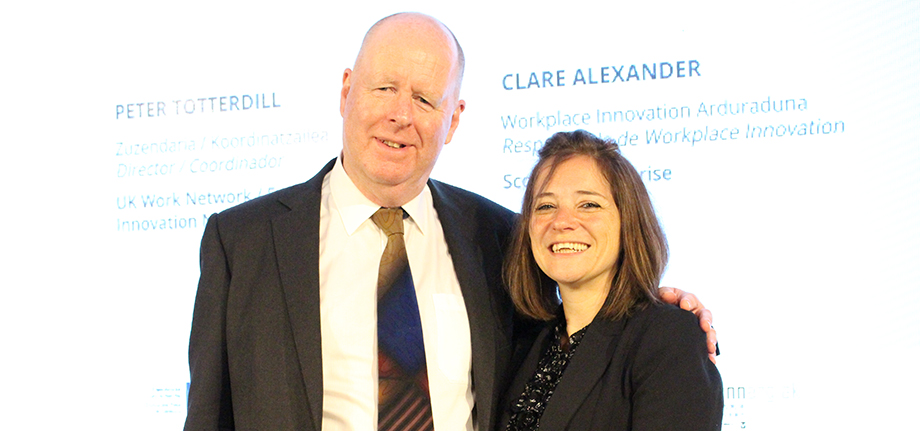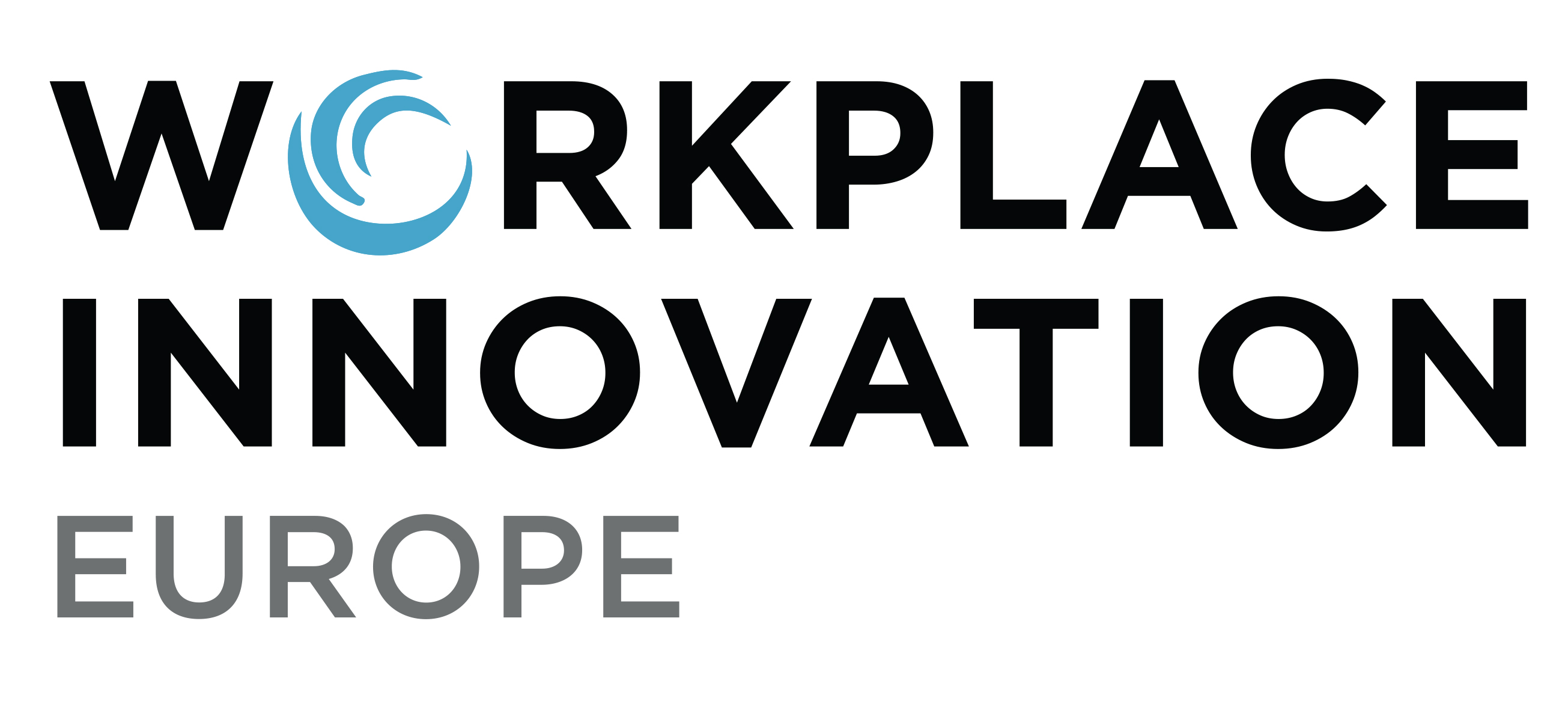How Scotland’s policy-makers are leading the way in workplace innovation

In early 2016, Scotland’s Fair Work Convention set out its vision for the future of work which included a practical blueprint for Fair Work and a new type of dialogue between employers, employees and trade unions, public bodies and the Scottish Government. The aim was to support the Scottish Government’s objectives of increasing sustainable economic growth and reducing inequality through the promotion of greater diversity, innovation and equality in the workplace.
Rarely in the UK has the role of policy-makers in creating a vision of the workplaces of the future been so decisive and catalytic. The challenge was taken up by Scottish Enterprise, the country’s main economic development agency, who began to work with partners in the public and private sectors to identify and exploit the best opportunities to deliver a significant, lasting effect on the Scottish economy.
The outcome was a portfolio of initiatives to promote workplace innovation, defined as the introduction of workplace practices that enable people to use and develop all of their knowledge, skills and creativity in their day-to-day jobs. Amongst the most significant of the initiatives is the two year pilot Workplace Innovation Engagement Programme (WIEP), helping companies achieve far-reaching changes that empower employees at every level to improve working practices and drive Scotland’s competitiveness and economic success. Scottish Enterprise appointed Workplace Innovation Europe Limited to deliver the WIEP programme to the first two cohorts of businesses.
 Clare Alexander, Head of Workplace Innovation at Scottish Enterprise, said: “As a core driver of competitiveness and growth, people are a fundamental aspect of our delivery plan, underpinning our work with companies, in sectors and international markets.
Clare Alexander, Head of Workplace Innovation at Scottish Enterprise, said: “As a core driver of competitiveness and growth, people are a fundamental aspect of our delivery plan, underpinning our work with companies, in sectors and international markets.
“This is not just about how we develop and acquire the skills we need to compete, it is also about how we deploy our talent to stimulate higher levels of innovation, growth, productivity and employee engagement.
“So one of the key factors driving workplace innovation is being able to support fairer work enabling individuals to make the most of their skills, their knowledge and creativity and empowering employees to have a voice within the business.”
According to Professor Peter Totterdill, Director of Workplace Innovation Europe Limited, the challenge of delivering the Deeper Engagement Programme was to provide leaders and change agents with a robust yet practically- oriented programme which combined individual competence development with the implementation of evidence-based workplace innovation.
Asking difficult questions and challenging established practice
must become part of the working culture.
He said: “Successful transformation requires better communication, competencies and engagement, creating a culture in which everyone comes to work both to deliver their functional tasks in the best possible way and to improve the business. Asking difficult questions and challenging established practice must become part of the working culture. Successful transformation depends on “working smarter” in ways that challenge traditional boundaries and demarcations. Companies need to mobilise employee knowledge, experience and commitment in securing sustainable change. Yet such profound challenges are never easy.”

It was an important element in the programme to select participating companies capable of making the right level of commitment to secure significant and sustainable change through a combination of individual learning and organisational transformation. Two people from each company – a senior manager and a ‘change enabler’ – take part in a 9 month programme which includes an ILM accredited training programme in which they explore existing case studies including film, real-life scenarios and other creative methods in order to understand key workplace innovation concepts and the role of leaders and change agents in implementation. In this way the Structured Learning Sessions helped ensure that robust, evidence- based approaches re subsequently put into practice by participants.
The participating companies each undertake a bespoke workplace innovation project designed to generate measurable and sustainable improvements in performance, quality, cost containment, employee engagement and well-being for the business and its employees.
In the event, 10 companies* differing widely in size and profile joined the programme. Each completed a self-assessment diagnostic based on the Essential Fifth Element, an original concept developed by Workplace Innovation Europe Limited to help critically assess existing practice and offer a resource to stimulate and inform sustainable change.
The resulting ‘Action Plans’ developed by each company were peer-reviewed by the other participants in the programme, leading to important changes and refinements. Progress towards their implementation was then discussed at a number of action learning workshops where delegates acted as ’critical friends’, drawing on their own experiences to improve refine change processes and help overcome obstacles. Each company also benefitted from in-house coaching and facilitation by Workplace Innovation Europe’s expert team.
It was clear that each benefited from sharing experiences, knowledge and good practice
and from building relationships with other participants
The outcomes were extremely positive with each participant gaining an understanding of workplace innovation as a concept. The programme provokes an awareness of the business and employee benefits of workplace innovation through evidence from recent research findings and case studies. It was clear that each benefited from sharing experiences, knowledge and good practice and from building relationships with other participants. The programme had delivered actionable knowledge along with enhanced leadership and change competencies.
Donald Miller of Jedburgh based precision tool manufacturer L.S. Starrett said: “Our participation has been essential in meeting our need to adapt to changing circumstances primarily because we were a very inward looking company and it’s only when you come to this kind of programme where you realise that there are other companies with similar challenges”.
Kat Halbert, Operations Manager at the Perth office of insurance multinational Aviva, added: “This programme has already benefitted us hugely. It’s been great to hear of examples of best practice and to demonstrate some of the things that we’ve done and what works and what doesn’t. It has enabled us to think outside the box, learn about the challenges of others and take some of their experiences back to our workplace.”
Scottish Enterprise also put into practice what it was preaching by consulting with employees and implementing action plans focussed on how to get more employee voice into the organisation. Team Leader Helen Noble said: “We are now getting people at all levels of Scottish Enterprise to buy into and implement agreed action plans and begin to change the way we work. We then aim to push this outside individual directorates into other parts of the organisation as we keep building new programmes for other companies.”
Professor Totterdill commented: “It’s hard to underestimate the ambition and the achievements of Scottish Enterprise. Workplace Innovation has been on the agenda of many organisations and businesses throughout Europe and even some governments for a long time, but when the initiative gets the full backing of a national government agency and the energy that its dedicated team bring, it is clear that the outcomes will have a positive impact not only on the participating organisations but, in the long term, on the national economy.
“This is in stark contrast to the UK Government’s approach of publishing an industrial strategy green paper setting out its ten “strategic pillars” to underpin its “new” approach but with little information on how it intends to deliver its wish list, who will make it happen and how businesses and other organisations will be encouraged to participate. The objectives set out in the green paper such as investing in science, research and innovation, developing skills, supporting businesses to start and grow and cultivating world-leading sectors are not the problem but it is assumed they can be achieved without introducing new workplace practices, new ways of communication and new types of employee engagement that will create the dynamism and creativity required for sustainable change.
“The Scottish Government has realised this and if ever there was a great example of policy-makers influencing practical and effective application, the Scottish Enterprise Workplace Innovation Engagement Programme is it.”
* Deeper Engagement Participating Organisations
Aviva (Insurance, Perth), Leonardo Selex (Defence Systems, Edinburgh), Liberty Steel (Dalzell & Clydebridge), L.S. Starrett (precision tools, Jedburgh), Elanco (pharmaceutical products for animal health, Dundee), Endura (cycling apparel, Livingston), Devro (collagen casing/plastics, Chryston), DS Smith (packaging, Lockerbie), The Factory Skatepark (purpose built Skatepark, (Dundee), Cornerstone (care provider, Aberdeen).
